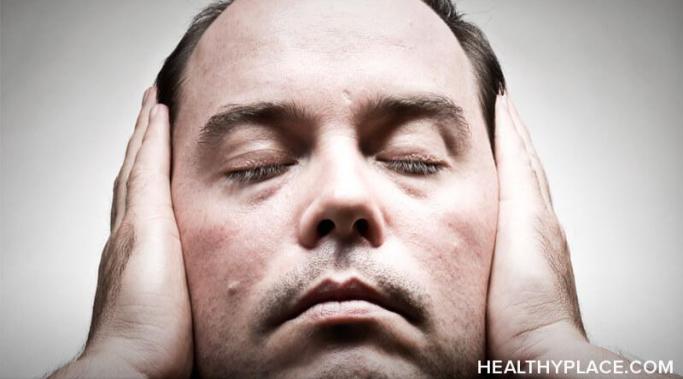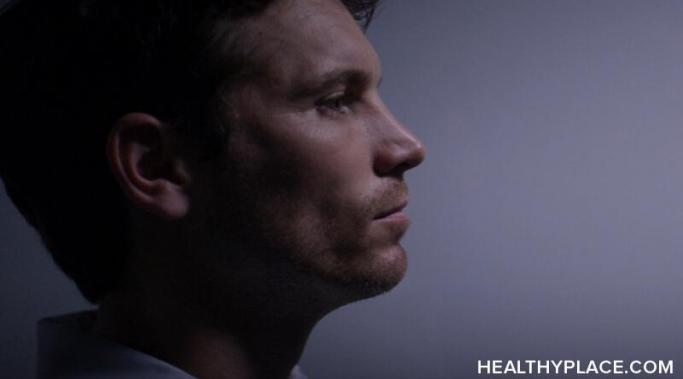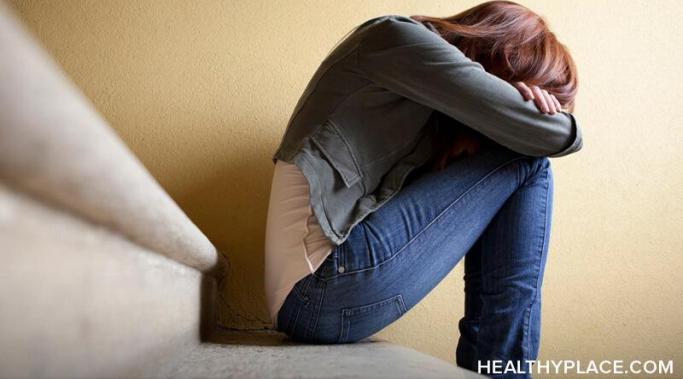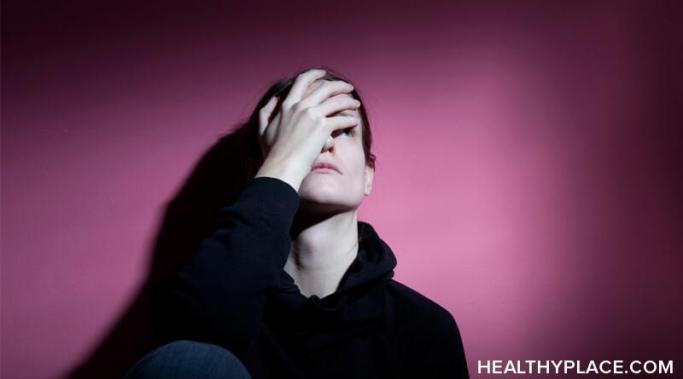I have schizoaffective disorder, and I’m hearing voices again for the first time in a long time. Due to medication, I didn’t hear them for what seemed like ages. But now they’re back. Here’s what it’s like to be hearing voices again with schizoaffective disorder.
Schizophrenia Symptoms
I recently flew in an airplane, and it triggered my schizoaffective anxiety. Here’s how my schizoaffective anxiety was affected by flying in an airplane.
One thing I’ve learned about having schizoaffective disorder is how to use coping skills for my symptoms. Some of the skills I’ve developed myself and some I’ve learned in therapy. Here are some of the coping skills I’ve learned for the symptoms of my schizoaffective disorder. (Note: This post contains a trigger warning.)
I deal with schizophrenia anxiety around COVID-19. The pandemic hit me especially hard. I still haven't recovered my former level of social activities, and much of my time is spent indoors and alone -- isolated. I still wear masks in the grocery store and don't dine indoors in restaurants (I live in a warm climate). When most of the world went on with their lives and returned to normal, my paranoia and anxiety kept me stuck in a loop of fear, worry, concern, and the possibility of adverse outcomes. Even though we took many precautions against contracting the virus, my husband returned to work over a year ago, and last week, he started having symptoms. Two days later, I did, too. After a few days, we both tested positive for COVID-19.
I have learned that diet can affect anxiety. Anxiety is so uncomfortable in my life, and it is second only to the discomfort and distress caused by psychosis. I would do anything to try and reduce its impact on my body, mind, and life. I rarely have an anxiety-free day. I find it challenging to participate in daily activities like my guided journals (I work through them to try and get at the root of anxiety), my daily writing practice, exercise, or anything else on my to-do list. I lose more days to anxiety than anything else. That's why I'm changing my diet to help my anxiety.
I told my therapist that my primary goal was to learn to handle my anxiety so I could turn my focus to managing my symptoms of schizophrenia. In our second session, my therapist put forth a brilliant strategy worth the cost of this add-on to my psychiatric treatment. She said that when I first start to feel anxious, I should start using all the techniques I have learned to deal with anxiety attacks. By managing my anxiety, I can better manage my schizophrenia.
A lot of worrying comes with my schizoaffective anxiety. I am constantly worrying—ask anyone who knows me. Even someone who doesn’t know me that well knows that I worry all the time. And to top it all off, I blame myself for my worrying, even though it's anxiety-related. Here’s what it’s like.
Which is worse, having really bad arthritis in my knees or hearing voices? I don’t know. They both stink, and I’ve suffered from both. Not that rank needs to be pulled, but maybe I’ll figure out which one is worse--or which one I can cope with better--by writing about hearing voices versus arthritis.
For me, psychosis involves auditory hallucinations (hearing voices and sounds) and is the most dangerous part of my illness. The last time I went to the emergency room for symptoms of psychosis, the doctor asked me if I heard voices, and when I answered that I was, he asked an important question, "Do you do what the voices tell you to do?" And unfortunately, my answer was yes. If you can't immediately see the danger in this scenario, try to think of it this way, imagine taking orders from something that is not real. It's alarming. Schizophrenia, voices, combined with suicidal ideation, is even more alarming.
While doing a few mental health presentations recently, I was surprised that not everyone knew that hallucinations could originate from any of the five senses (taste, touch, sight, sound, smell). There are many different types of hallucinations. I have experienced hallucinations from every one of my senses except maybe taste (gustatory). My most common hallucinations are olfactory (smell). I frequently smell chemicals or something burning when there is no source for either one of those things.









